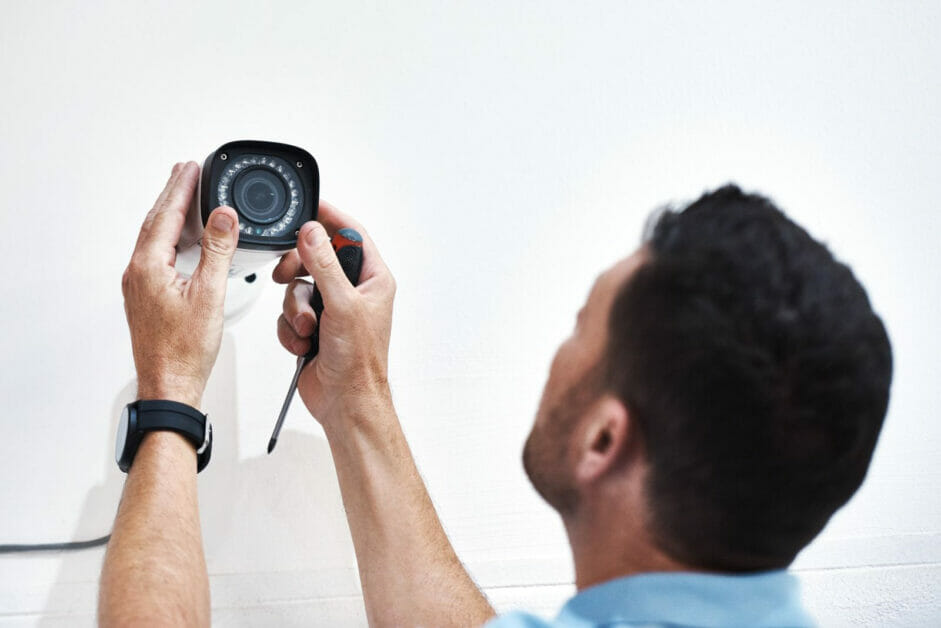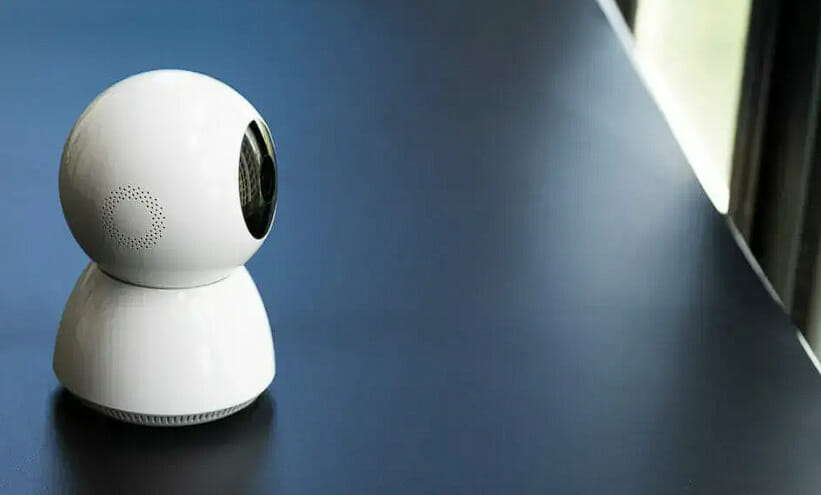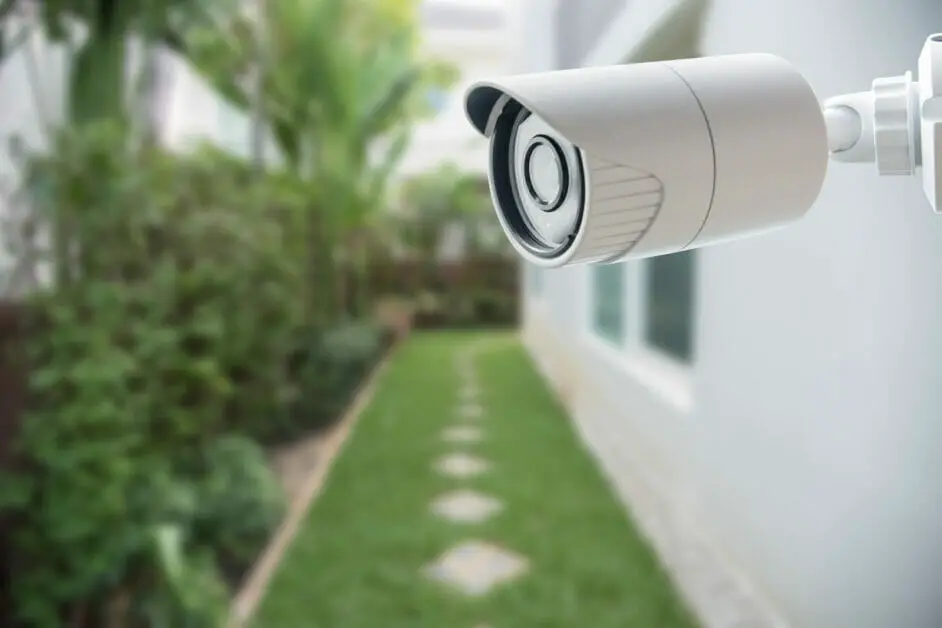Home security cameras are everywhere these days, and I can’t help but wonder, are they invading our privacy? If unsure, you’re in the right place for a thought-provoking discussion.
Whether home security cameras are, an invasion of privacy is multifaceted. It largely depends on the implementation of the cameras and the intention behind their use – are they strictly monitoring one’s private property for security, or are they breaching others’ privacy by capturing footage beyond the private property line?
From interviewing privacy experts to understanding security camera laws, I’ve gathered intriguing insights into this debate. So, let’s dive right into it and discover the thin line between protecting our homes and respecting our right to privacy.
Home Security Cameras and Privacy
Reasonable Expectation of Privacy
First, it’s essential to understand that every person has a reasonable expectation of privacy.
This concept means that we all have a right to protect our personal information, spaces, and activities from being made public without our consent.
However, what’s considered “reasonable” often varies depending on the location and situation.
For instance, you expect privacy within your home, but this may not extend to public spaces like streets or parks.
The line gets a bit blurry regarding home security cameras, such as Ring or Nest. These devices are designed to protect our homes, but we must also consider the potential privacy concerns for neighbors and passersby.
Consent

Before setting up a security camera system, getting the consent of those being recorded is crucial.
In many states, you’ll need the permission of the person being recorded, especially if the camera is hidden or placed in an area where privacy is generally expected.
Of course, consent doesn’t always resolve all privacy issues. For example, capturing images of public spaces with a security camera system could still potentially infringe on someone’s privacy, despite having your neighbors’ approval.
An open conversation with everyone involved can help prevent misunderstandings and potential legal disputes regarding home security devices.
Camera Placement

And then there’s camera placement. Proper placement of home security cameras plays a vital role in avoiding privacy invasion.
For example, ensuring your cameras don’t peer into your neighbor’s windows or capture areas that might make someone uncomfortable is essential.
Pointing a camera toward your neighbor’s property or installing one inside a bathroom is an invasion of privacy.
Angle your cameras to focus on your property, doorways, and walkways rather than pointing them at shared outdoor spaces.
To avoid such pitfalls, ensure your cameras only cover the areas necessary to keep your home safe.
Proper placement helps balance security and privacy and ensures your home security system operates legally and ethically.
Privacy Implications Based on Camera Placement
| Camera Placement | Privacy Implications |
|---|---|
| Front Door | Potential privacy invasion of visitors, mail carriers, and neighbors walking by. |
| Backyard | Might capture activities in neighboring yards, infringing on their privacy. |
| Windows facing the street | Could record public areas and passersby, potentially violating privacy expectations. |
| Indoors – Living Room, Kitchen | Visitors and family members may feel their actions are constantly being monitored, leading to discomfort. |
| Indoors – Bedrooms, Bathrooms | High invasion of privacy. It’s generally inappropriate and often illegal to place cameras in these private areas. |
| Overlooking a neighbor’s property | Direct violation of a neighbor’s privacy is likely illegal in many jurisdictions. |
| Common areas in multi-dwelling units (like apartments or condos) | It could infringe on the privacy of other tenants if not disclosed and agreed upon. |
For each placement, it’s essential to consider the privacy implications and make adjustments to respect others’ privacy while maintaining home security.
Privacy Laws vs. Consent Law Per State
Regarding security cameras, privacy laws, and consent laws vary by state. I’ve dug into the details to help you better understand the legality of using security cameras at your home.
Firstly, let’s talk about the expectation of privacy laws. These laws protect a person’s privacy rights in certain areas or circumstances.
Generally, installing security cameras in your home is legal as long as they don’t violate a person’s expected privacy. For example, pointing a camera at your neighbor’s bedroom is a big no-no.
But that’s not all. We must also consider one- or two-party consent laws for audio recordings. In some states, conversation recording requires consent from only one person involved, while others require consent from all parties.
So, if your security camera has audio capabilities, ensure you’re following your state’s consent laws.
Now, you might wonder how to navigate these laws in your state. If you’re like me, you love a good visual representation to make things easier. So, I’ve prepared a concise comparison of privacy and consent laws for different states:
| State | Audio Consent Laws | Privacy Laws |
|---|---|---|
| California | Two-party consent required | Strong protections for expected privacy |
| Virginia | One-party consent required | No point system for privacy violations |
| Colorado | One-party consent required | Heightened privacy protections for certain data |
| Utah | One-party consent required | Privacy protection focuses on biometric data |
| Connecticut | Two-party consent required | Strict privacy protections in place |
Of course, this is just a snapshot of regulations in a few states. I’d suggest researching your local privacy and consent laws comprehensively.
So there you have it – a short and sweet rundown of privacy and consent laws per state. Remember, these laws are in place to protect everyone’s right to privacy, so make sure your security camera setup abides by the guidelines.
Types of Cameras and Privacy Concerns

| Type of Camera | Privacy Concerns |
|---|---|
| Indoor Cameras | Intrusion into personal life, if installed in private areas like bedrooms or bathrooms. It could capture sensitive information if not placed properly. |
| Outdoor Cameras | May capture activities beyond the intended property, potentially infringing on neighbors’ privacy or capturing footage from public spaces. |
| Doorbell Cameras | Records everyone approaching the front door, including neighbors and visitors, potentially infringing on their privacy. |
| Wi-Fi Cameras | Vulnerable to hacking, leading to unauthorized access and misuse of personal footage. |
| Hidden Cameras | Use without consent could lead to a major invasion of privacy, particularly if installed in private spaces. |
| Pan-Tilt-Zoom Cameras | A wide field of view can capture activities beyond the intended monitoring zone, causing privacy issues. |
| Cloud-Based Cameras | Stored footage might be accessible to a service provider—the risk of data breaches and unauthorized access to personal footage. |
| CCTV Cameras | Constant surveillance could make individuals feel uncomfortable, impacting their right to privacy. |
Remember, each camera type can provide valuable security benefits when used appropriately and considerately. However, improper usage can indeed lead to significant privacy concerns.
Privacy Laws and Regulations
Federal and State Laws
It’s important to note that no overarching federal law regulates home security camera use. It all depends on the state laws in your area.
One thing remains constant, though: it’s generally legal to use cameras for the security of your home. However, there may be some restrictions regarding certain spaces like bathrooms or someone else’s property.
Surveillance Laws
Surveillance laws address the legality of monitoring and recording the activities of other individuals.
Although security cameras are generally allowed, certain locations may be off-limit because of their strong association with privacy.
And in some states, it’s illegal to record someone in a situation where they have a reasonable expectation of privacy without their consent.
You should know local surveillance laws to ensure you’re not invading someone’s privacy with your home security camera.
As mentioned, some states have specific surveillance laws that protect a person’s privacy. For example, you cannot record video of a neighbor’s home, especially the private areas like bedrooms or bathrooms.
Remember, the key phrase here is a reasonable expectation of privacy. But, in public places, surveillance by cameras is generally allowed.
Wiretapping Laws
Wiretapping laws mainly concern audio recordings. Regarding home security cameras, these laws are relevant if your camera records sound.
Some states require the consent of every recorded party, while others only need one party’s consent.
That means, depending on where you live, recording your voice with your security camera might be perfectly legal, while recording your neighbor’s voice might not. Check your state’s wiretapping laws to make sure you comply.
Law Enforcement Access
This is a big concern for some folks: what happens when law enforcement wants to access your home security footage?
With the rise of smart security camera systems, law enforcement agencies can increasingly access recorded footage. In some cases, this access requires a court order.
But in more extreme situations, some home security camera companies have provided footage to the police to aid in investigations.
Understanding how local law enforcement accesses recorded video is essential to balance security and privacy.
And again, let’s not forget that each state has different home security camera usage laws. Therefore, I highly recommend double-checking your area’s regulations to ensure compliance.
Privacy-Related Problems and Solutions with Home Security Cameras
| Privacy-Related Problems | Solutions |
|---|---|
| Recording beyond the boundary of one’s own property | Set up cameras so they only capture footage within your property boundaries. Use privacy masks or zones if the camera supports it. |
| Capturing audio without consent | Disable the audio recording feature if it’s not necessary, or inform all parties that they may be recorded. Follow local laws regarding audio recording. |
| Invasion of indoor privacy | Only install indoor cameras in public areas of the home, avoiding places like bedrooms and bathrooms. |
| Hacking risks with Wi-Fi or cloud-based cameras | Use strong, unique passwords and update them regularly. Enable two-factor authentication if available. Keep the camera’s firmware up to date. |
| Misuse of stored footage | Limit access to the recorded footage to only authorized users. Regularly delete unnecessary footage. Use encryption if storing footage on the cloud. |
| Lack of transparency with neighbors | Inform neighbors about your home security cameras. Ensure the cameras do not intrude on their privacy. |
| Capturing public spaces | Angle your cameras to avoid capturing public spaces, focusing only on your property. |
| Infringing on the privacy of visitors | Inform visitors about the presence of security cameras in your home. |
Remember, the key to effectively using home security cameras is to balance the need for security with respect for privacy. Always be aware of and respect local laws and regulations related to surveillance and privacy.
References
Website Resources:
- National Conference of State Legislatures (NCSL). https://www.ncsl.org/
- Privacy Rights. https://privacyrights.org/
- The Surveillance Studies Centre. https://www.surveillance-studies.ca/
- Stanford Law School’s Center for Internet and Society (CIS). https://cyberlaw.stanford.edu/focus-areas/privacy

